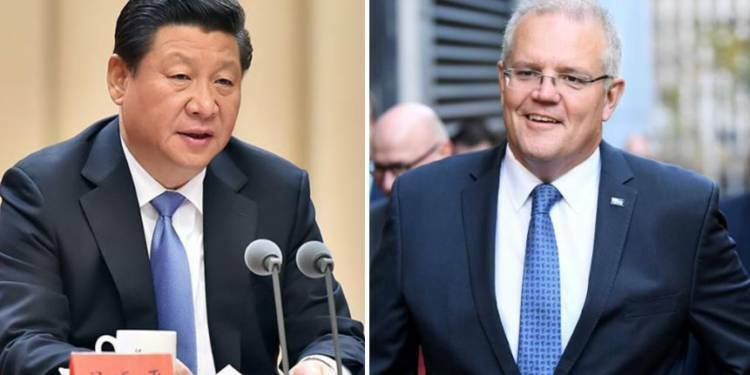China has to be applauded for relentlessly pursuing its foreign policy interests, however, with the QUAD members in continuous lookout for opportunities to one-upmanship the Chinese in the arena of foreign policy and geopolitics. This time again, Australia has caught up with Chinese actions in the Pacific and before China could make the gains, has decided to counter the Chinese efforts by putting its weight into the issue. Digicel, a telecommunications service provider, suffering from financial hardships and complicated situations, is looking for rapidly offloading its mobile phone networks across the Pacific region, including in Papua New Guinea, Fiji, Tonga and Samoa.
But the potential buyers are creating a problem on a political level as the most possible buyers are Chinese companies which could very likely compromise geopolitical status-quo of a region which has traditionally been an Australian area of influence. China would very much like to gain a foothold in this region, with a number of Chinese companies reportedly interested in Digicel’s assets, including Huawei, ZTE, and China Mobile. Australia has realised it early and which is why Scott Morrison has decided to provide governmental support to its companies to bid for the Digicel’s Pacific operations and keep them out of the hand of the sketchy Chinese Communist Party.
Australia has become woke about the vulnerability it was in, given its dependence on the Chinese in business and economics. However, as the Chinese kept up their process of keep humiliating the Australians and they reached a tipping point and have now decided to take on belligerent China in tandem with its quad partners as well as other like-minded countries. And quite recently, these actions are resulting in a significant effect on the Chinese economy.
The Chinese efforts to punish Australia economically have failed, but the Australians have continued to punish the Chinese for even trying to take on the Australians. As per the data released by Beijing’s customs agency, Australia exported goods worth $148 billion ($US114.8 billion) to China last year. This is a small decline against the record level of exports worth $154 billion ($US119.6 billion) set in 2019. And even the small decline can be explained by the drastic decline in Chinese consumption following the Wuhan virus outbreak and the general economic slowdown triggered by a global backlash against Beijing.
Yet, Australian exports to China are almost ten percent higher than the 2018 levels. China’s trade tariffs campaign against Canberra has been undermined by the high iron ore prices. Iron ore, the basic raw material in steel manufacturing, is in high demand across China. Steel demand is going up in the Communist nation because of Xi Jinping administration’s ambition to revive the Chinese economy by pumping billions of dollars into construction activity. So, as infrastructure development blitz needs lots of steel, and steel manufacturing itself needs iron ore, China is not ready to deny Australian Iron-ore as Australia accounts for 60 per cent of iron ore supplies to the Chinese steel mills. Australian miners like BHP, Rio Tinto and Fortescue are some of the biggest suppliers of iron ore to China. Elevated iron ore prices are thus poking holes in Xi’s trade wars against Canberra.
“Where appropriate, the Australian government supports Australian businesses investing in infrastructure in the Pacific, including communications infrastructure, which plays a key role in economies across the region,” said a spokeswoman for the Department of Foreign Affairs and Trade, adding that any proposal would be “considered on its merits.
All of this has made Australia even more confident that the Chinese even if they try cannot inflict enough damage on Canberra. And now Australia is giving the Chinese the same medicine, and the fact that Australia is going to keep up its pressure on Chinese efforts one way or another, and this is just one of the many to come.








